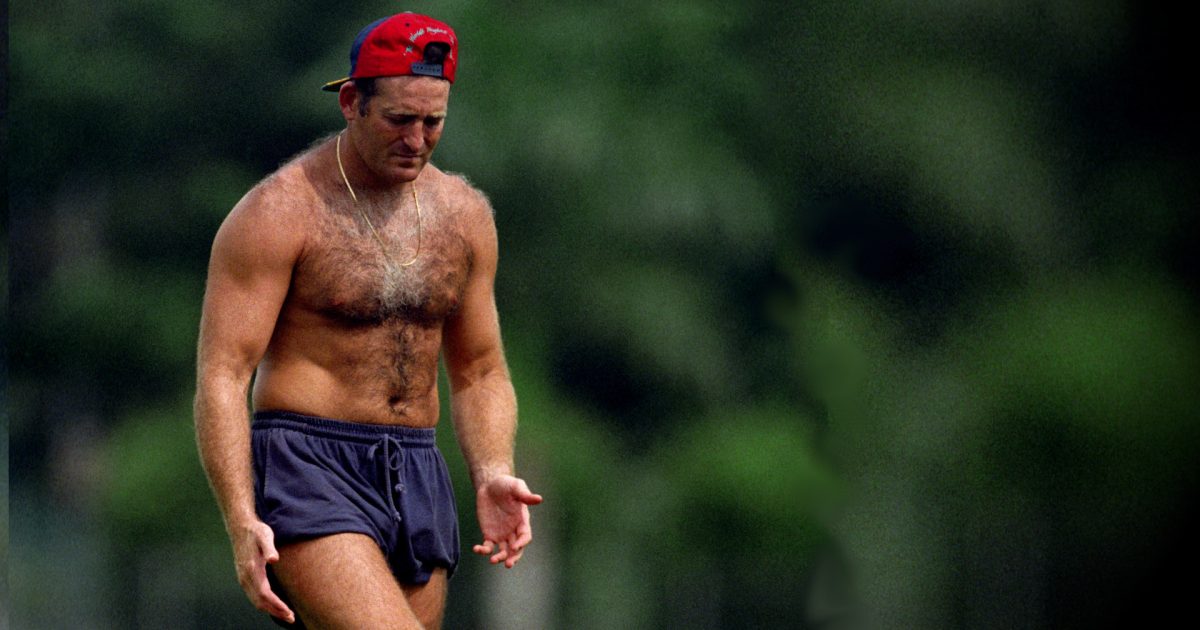'I don't think modern rugby players are all that happy'

Australian icon David Campese believes that modern rugby has lost its sense of fun and that there are less and less mavericks plying their trade in the professional game.
Campese recently penned the forward to Welsh author Luke Upton new’s book: Rugby’s Greatest Mavericks, in which he claims that rugby in its current form lacks the joie de vivre it once had and worries that the crowds will ‘drift away’ from the sport.
The founding member of the Wallabies Test centurions club, the sublimely skilled winger amassed 101 Test caps for the Wallabies between 1982-1986, scoring 64 tries making him Australia’s all-time leading try-scorer.
Loving this from @MrLukeUpton
'Rugby Greatest Mavericks'.
Perfect Christmas gift ???https://t.co/Igsf7mduv2 pic.twitter.com/xp5gRBEZVK
— Paul Williams (@thepaulwilliams) October 29, 2022
Campese had a ringside seat for Australia’s golden generation and fondly remembers playing alongside the Ella brothers.
“The mavericks that inspired me were the Ella brothers, Mark, Gary and Glen. Remarkable with the ball, they all thought the same and played with instinct. I remember playing an exhibition match with Mark – we had a scrum in our own 22 and he looked at me and simply said, “Look for me,” and we traded passes all the way down the pitch to the try line. The Ellas followed on from the Seventies Wales boys like Phil Bennett, Gerald Davies, Gareth Edwards and J P R Williams: those were real mavericks and their style set the world alight. Shane Williams would be a worthy successor to them.
“Back in my playing days, Serge Blanco and Jean-Baptiste Lafond were fantastic players: pure French flair. Andy Irvine lit up games for Scotland in a conservative era for them. I really liked the Irish wing Simon Geoghegan, a great player who never got the ball much – if he’d been Australian, he’d have been a sensation! I played a lot of sevens against Waisale Serevi and he had unbelievable skills, and always wanted to try things. Today I like the small guys: the South African Cheslin Kolbe particularly, and Finn Russell for Scotland, and I enjoy watching France with Romain Ntamack and Antoine Dupont.”
Campese believes “the modern game is too dominated by coaches” and that flair is being trained out of young players in particular. Campese, believes that the influence of rugby league on the game has had a detrimental effect on the sense of fun that once typified the sport.

“Players have no idea how to think about the game themselves. If it’s not working, they don’t know how to change tactics. They are overcoached. We need to stop the coaches running onto the field and telling players what to do. They are meant to be the best in the country: they should be left to control the game and not their coach up in the stand with his microphone. This is part of the influence that rugby league has over union now – it’s not just coaching staff, but this approach to the game and emphasis on the defence – and I think it’s deeply negative.
“But the worst invention in world rugby is the academy. They’re run by people who were never that good at playing rugby, and just churn out boring players who can’t think for themselves, taking them out of club and school rugby, where they’d be better off. There are too many people at the top of rugby, all over the world, who don’t know what they are doing.”
“I don’t think modern rugby players are all that happy. If I was playing now, I’d still be pretty bloody good, but I wouldn’t be able to just stand on the wing waiting for the ball. I’d go looking for the ball, and a lot of coaches now don’t like that. I wouldn’t want to play now – since turning professional, it’s too serious. Society has changed, the pressure has increased, and the game is the worse for it. Quite simply, it’s less fun.
“There are a lot of great players out there, but I worry that if the crowd aren’t entertained, those crowds will drift away. Here in Australia, we have four football codes vying for attention, but there are different pressures all over the world. And if kids don’t get into the game, soon there won’t be a game at all.”
Rugby’s Greatest Mavericks, published by Y Lolfa, is available from all good bookshops and online retailers. You can buy your copy HERE.
































































David, consider a post in Australia for my company and grass roots club sponsorships
David said :“But the worst invention in world rugby is the academy. They’re run by people who were never that good at playing rugby, and just churn out boring players who can’t think for themselves, taking them out of club and school rugby, where they’d be better off. There are too many people at the top of rugby, all over the world, who don’t know what they are doing.”
exactly what I said in another pod, get rid of the idiots running rugby union, and bring in those who play at the highest level.
I think Campo played from 1986-1996. Good article, think the modern game is very money driven, and the seasons are getting longer, less down time.
The #1 problem with the modern game is substitutions. Too many subs coming on, and not just for injuries, led to players getting too big because they don't have to go 80mins. That means less space and bigger collisions, cause worse injuries. Getting rid of League style subs would solve A LOT.
Good point Campo. Beauden Barratt and Damien Mackenzie still have smiles on their faces and are unique. I know what you mean though. Nothing worse than a bunch of disgruntled schoolboys walking around field. Puts you off.